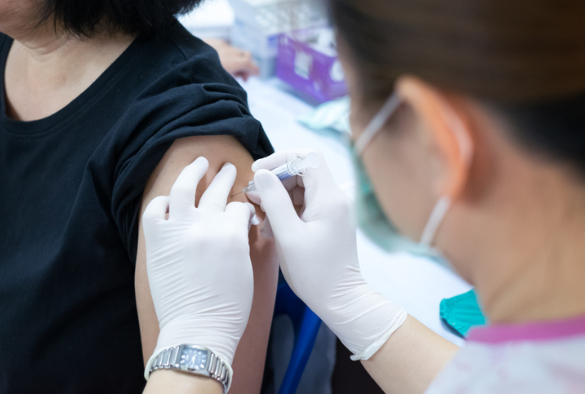
Researchers at the University of Liverpool are part of a new project to increase the number of care home staff that take up the flu vaccine.
The £1.4 million project, led by the University of East Anglia (UEA) and funded by the National Institute for Health Research (NIHR), will test different ways of encouraging staff to take up the vaccine.
The team hope that their work will help reduce the number of cases of flu in care homes, and importantly – save lives.
The three-year FluCare project also involves the University of Leicester and organisations including Public Health England, the National Care Forum, Care England, Boots UK and Day Lewis Pharmacy.
Range of approaches
Dr Amrish Patel, from UEA’s School of Economics, said: “Every year flu, caught from staff and visitors, causes serious illness and death in care home residents.
“While vaccines work in most people, there are always some for whom they do not work. That means that if we give vaccines to care home residents, some will still not be protected.
“The best way to protect residents is therefore to vaccinate care home staff as well. But while the World Health Organisation recommends that over three quarters of care home staff should be vaccinated, in the UK – less than half of staff take up the jab. And this puts residents at higher risk.”
The research team will investigate a range of approaches, such as community pharmacists vaccinating staff in the care home and offering incentives to managers.
They will work with care homes and pharmacies across East Anglia, London and the East Midlands, and test the approaches in 10 care homes during flu season.
The team will go on to work with 70 care homes with low vaccination levels to see how their approaches improve vaccine uptake and whether the health of residents improved.
Public and patient involvement
Researchers at the University of Liverpool will lead the public and patient involvement part of the project, making sure the views of people who live in care homes, their relatives, and staff working in care homes, are included throughout the project.
Dr Alys Griffiths, Lecturer in Clinical Psychology in the university’s Institute of Population Health, said: “This project will improve understanding of how we can help staff protect residents living in care homes from flu. We hope that this project leads to greater understanding of the importance of flu jabs and work out the best ways of increasing rates of flu jabs for staff”.
Liz Jones, who is working with Alys to make sure that residents’ and carers’ views are kept at the centre of the project, said: “Everything care home staff do affects the health and well being of residents, and this includes how they manage their own health. We’re all really keen to find out how we can improve flu vaccination rates in care homes. We hope this study will directly enhance the care our loved ones receive.”
Get involved
Alys and Liz are currently looking for relatives of people living in care homes to join the project’s Lay Advisory Group. The group will meet 8 times over the next 3 years to advise on all parts of the project. If you’d like to hear more, please email flu.care@uea.ac.uk